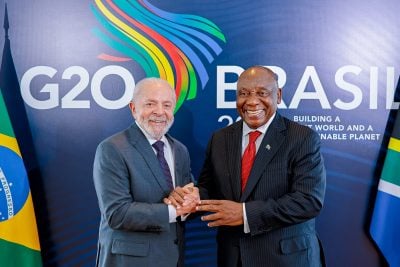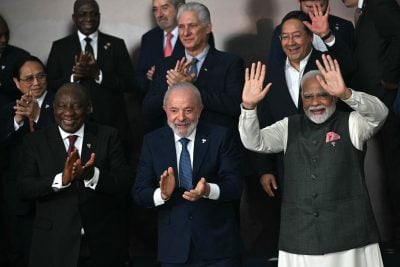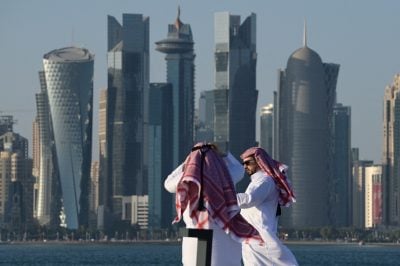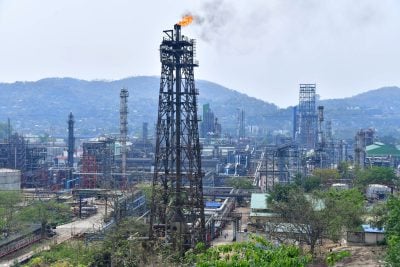This article was produced with the support of United Nations Economic Commission for Africa (ECA)
As delegates gather for the Africa Regional Forum on Sustainable Development (ARFSD) at the end of April in Addis-Ababa, they will be mindful of the continent’s struggles to achieve the Sustainable Development Goals (SDGs) by the 2030 deadline. With only a little over half a decade to go, many countries are far from the set targets. In the aftermath of the Covid-19 pandemic, some have even slipped a little farther from the targets. One of five regional fora organised by the United Nations, the 2024 summit will provide another opportunity for African governments to evaluate the progress they have made, share ideas and promote best practices in pursuit of the 2030 agenda.
The Forum is designed to focus on five SDGs ahead of the July UN High-Level Political Forum on Sustainable Development, as well as the Summit of the Future, which will be held during the UN General Assembly in September. According to Nassim Oulmane, a senior economist at the United Nations Economic Commission for Africa (ECA), and head of the ECA’s Technology Climate Change, and Natural Resource Management Division, the Forum will provide a platform for governments and other stakeholders to develop the tools to pursue implementation of the SDGs and the African Union (AU) Agenda 2063, are critical. “It’s very important for us to develop these tools and link them to the development plans of countries so they can make an objective evaluation of the two agendas,” he explained to African Business.
The need for results as 2030 draws near can perhaps be discerned in the theme chosen for the tenth session – “Reinforcing the 2030 Agenda for Sustainable Development and Agenda 2063 and eradicating poverty in times of multiple crises: the effective delivery of sustainable, resilient and innovative solutions”. It reflects an increasingly urgent need to overcome the continent’s social and economic challenges, even as challenges old and new continue to compromise efforts and gains.
Since the pandemic, conflict in Europe, sky-high inflation and interest rates and ballooning debt have combined to rid many African governments of at least part of their capacity to reduce poverty, improve access to social services and amenities and make the investments necessary for sustainable growth. Debt, Oulmane says, is of particular concern: “24 of Africa’s 35 low-income countries are in or at high risk of debt distress with the continent owing over $650bn in external debt and $69bn in debt repayments this year, and we need to find innovative ways to mobilise financing and so we’ll be talking about that.”
Climate change looms over all
Above all these looms climate change, which is expected to have a disproportionate effect on a continent where food systems are largely yet to adopt modern technologies, where access to energy is limited and investment into climate resilience remains perilously low. Already, climate catastrophes are wreaking havoc on food systems, energy supply and poverty reduction. “This is a very important consequence in terms of security, migration and other things. All these young people who are dying in the Mediterranean are all a consequence of this type of crisis,” Oulmane points out. It is appropriate, then, that there will be sessions specifically dedicated to the youth and the future of the continent, where young people will also be able to get their voices heard on matters that directly affect them.
For some countries, such as Malawi, climate events have reduced their energy capacity with a concomitant reduction in gross domestic product growth, a surge in poverty levels and severe food insecurity. This is exactly the situation that the Loss and Damage Fund, finally operationalised at the 28th Conference of the Parties (COP28) in the United Arab Emirates after many years of discussions, seeks to address. However, climate financing, which Africa gets very little of, will be critical to securing resilience for the continent and the ARFSD will address the question of how more climate finance can be made available to Africa.
Despite its potential as a source of solutions, Africa has only managed to attract about 2% of the global investment into climate solutions. Thinking differently and innovatively around this question, Oulmane believes, is important. For example, creating regional frameworks can help convince investors wary of the risks associated with smaller projects. Where there is mutual trust, debt can be converted into climate investments, as has been done by Cabo Verde and Portugal. “It’s not about a quick operation; it’s about showing how these investments integrate into the development plan,” Oulmane says of this innovation, noting that Africa faces a development as well as a climate challenge.
A robust system will also be needed to enable Africa to get the most from its carbon resources, such as the Congo basin, which, along with the Amazon, is described as the lung of the earth. “More and more we discover that the sequestration capacity of the Congo basin is even more important. The peat swamp forest in the Congo Basin holds approximately 29bn tonnes of carbon, roughly equivalent to three years’ worth of global greenhouse gas emissions. Moreover, the Basin absorbs nearly 1.5bn tonnes of carbon dioxide annually and so the question is how to set a whole ecosystem that will very quickly stop the race to the bottom because when countries sell alone, they compete and end up selling sequestered carbon at lower rates.” Part of the work of the ECA, Oulmane explains, is to help coordinate such regional and continental solutions, in this case helping set up a regional register and an artificial intelligence centre in Brazzaville, Congo. Functional carbon and biodiversity markets with countries able to certify and trade from a position would be a tremendous boon and ECA is, working with the AU and the Africa Export-Import Bank, focussed on this goal.
Another key intervention is the Great Blue Wall initiative, first launched by the International Union for Conservation of Nature and swiftly joined by the ECA. The initiative seeks to address the challenge of limited impact and funding accessibility faced by smaller countries dealing with emergencies like climate and biodiversity issues. By pooling resources to implement large-scale projects spanning coastal areas from Mozambique to Somalia, the initiative seeks to demonstrate tangible climate impacts and facilitate access to climate finance. Ultimately, the goal is to empower coastal populations to become stewards of ocean regeneration, thereby addressing climate challenges and securing funding for impactful projects.
Oulmane issues a stark observation about the need for it to succeed. “With six of the nine planetary boundaries already crossed, we are approaching a dangerous threshold of irreversibility, with a real risk of breaking the food chain, which will result in acute food security crises combined with lethal humidity due to climate change, and therefore, brutal and very strong migrations, which could lead to conflicts, risking the use of unconventional weapons and therefore, quite simply, of the extinction of humanity.” While not all the concerns to be addressed might not be so sharply existential, there is no doubt that success at the tenth ARFSD could have very significant consequences on the future of Africa and indeed, the world.

 Sign in with Google
Sign in with Google 



